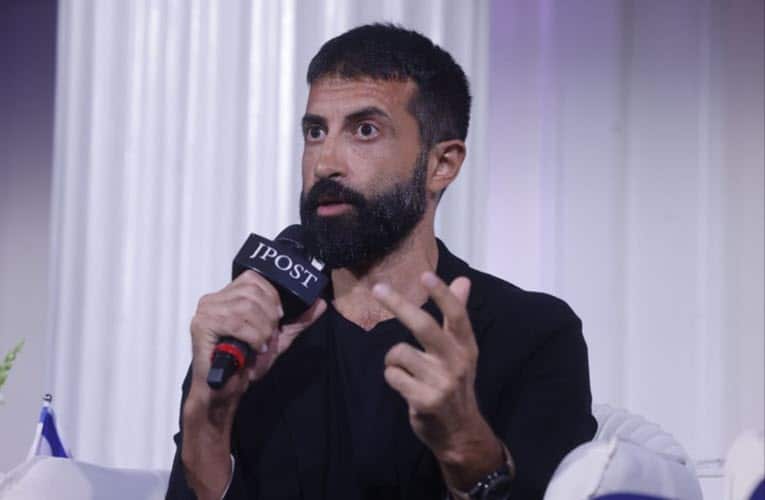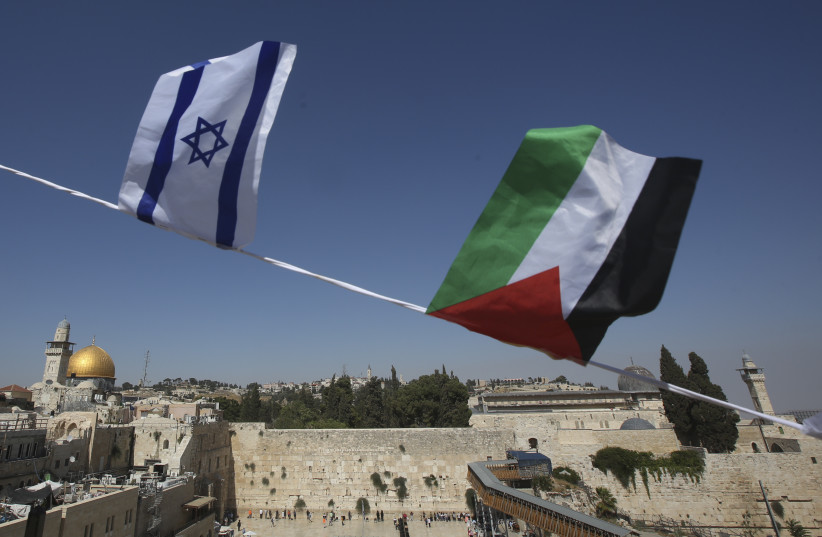Why the son of the Hamas co-founder stands firmly with Israel

The recent statements by Mosab Hassan Yousef at The Jerusalem Post Annual Conference earlier this week have reverberated far beyond the conference hall. The son of Hamas co-founder Sheikh Hassan Yousef, his bold assertions about the existential threats facing Israel from both Hamas and the Palestinian Authority (PA) challenge common perceptions and demand a deeper examination of the realities on the ground.
Yousef, known as “the Green Prince,” was once deeply embedded in the very organization that seeks Israel’s destruction, but now stands as a vocal critic of the Palestinian leadership and its objectives. His journey from a key figure within Hamas to an advocate for Israel’s security underscores a narrative that is both complex and revealing
The perspective of the Palestinian leadership wipes out Israel
His assertion that “Palestine depends on the destruction of Israel” is a stark reminder of the zero-sum perspective held by many within the Palestinian leadership.
This viewpoint suggests that any conception of a Palestinian state inherently negates the existence of Israel. Such a stance complicates peace efforts and fuels the ongoing conflict.


It is essential to confront this ideology head-on, acknowledging that the rhetoric of destruction from groups like Hamas is not merely political posturing but a core tenet of their existence. Yousef’s criticism of the Palestinian Authority as an even more significant threat than Hamas is particularly noteworthy.
While Hamas is widely recognized for its military operations, the PA is often perceived as a more moderate entity engaged in diplomatic efforts for a two-state solution. Yousef challenges this perception, however, arguing that the authority’s political machinations and propaganda are equally, if not more, dangerous. By funding global advocacy against Israel and perpetuating anti-Israel sentiment, the PA actively undermines the possibility of peaceful coexistence.
The historical context Yousef provides is crucial. The long history of Jewish persecution by Muslims, which he claims has persisted for approximately 14 centuries, cannot be ignored. This historical animosity along with contemporary political conflicts create a volatile environment where peace remains elusive. Acknowledging this deep-seated enmity is vital for understanding the broader dynamics at play.
Moreover, Yousef’s condemnation of anti-Jewish ideology within Islam is a bold and necessary discourse. The propagation of hatred towards Jews, embedded in some interpretations of Islamic teachings, continues to be a significant barrier to peace. Yousef argues that confronting this ideology is not only crucial for Israel’s security but also for global stability. His call to “fight Islam” should be interpreted as a call to challenge and reform these destructive ideologies rather than a condemnation of Islam as a whole.
Yousef’s proposed solutions, while unconventional, merit consideration. His suggestion that Arabs should be integrated into the IDF and take on responsibilities in the West Bank reflects a pragmatic approach to governance and security.
Additionally, his advocacy for mandatory Holocaust education across the Arab world highlights the importance of historical awareness and empathy in bridging divides. Teaching the atrocities of the Holocaust could foster a greater understanding of Jewish history and suffering, potentially mitigating antisemitic sentiments.
However, Yousef is unequivocal in his stance against a Palestinian state under PA control, arguing that it would spell the end of Israel. The incremental demands of the authority, as he describes them, suggest an insatiable desire for more territory, ultimately threatening Israel’s very existence. This perspective challenges the viability of the two-state solution, urging policymakers to reconsider the frameworks within which peace is pursued.
In light of Yousef’s insights, the international community must reassess its approach to the Israeli-Palestinian conflict. Blindly supporting a two-state solution without addressing the underlying existential threats posed by both Hamas and the PA is not only naïve but dangerous. Instead, a more nuanced approach is essential, one that considers the complex realities on the ground and seeks to dismantle the ideologies fueling the conflict.
Yousef’s message is a clarion call for clarity and action. As he rightly pointed out, ignoring these threats only postpones an inevitable confrontation.
By addressing the root causes of the conflict, challenging destructive ideologies and fostering historical understanding, there is hope for a future where both Israelis and Palestinians can coexist in peace. The path to such a future is fraught with challenges, but it is a journey that must begin with honesty, courage, and a willingness to confront uncomfortable truths.
Observer Voice is the one stop site for National, International news, Sports, Editor’s Choice, Art/culture contents, Quotes and much more. We also cover historical contents. Historical contents includes World History, Indian History, and what happened today. The website also covers Entertainment across the India and World.
Follow Us on Twitter, Instagram, Facebook, & LinkedIn

